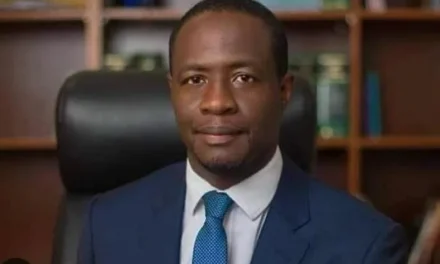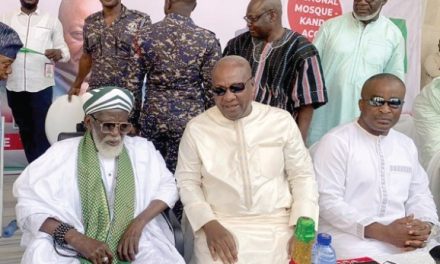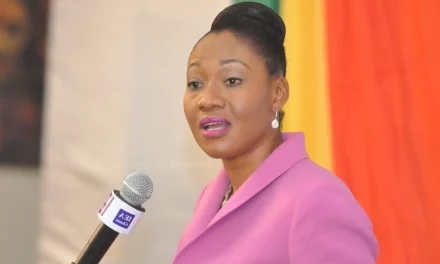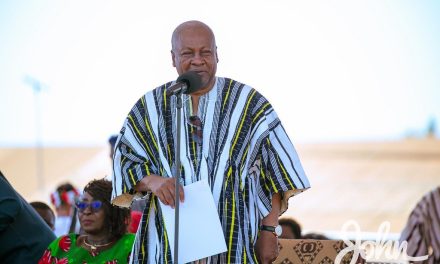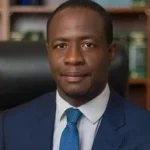
Decreasing Filing Fees For Women Parliamentary Aspirants Not Enough – Zanetor Rawlings5 min read
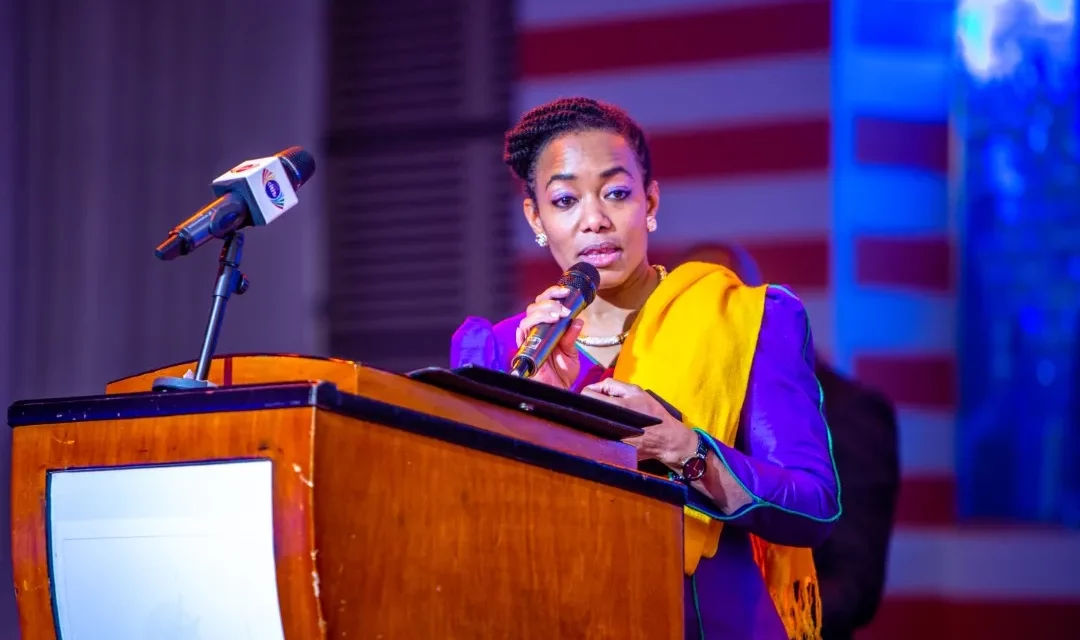
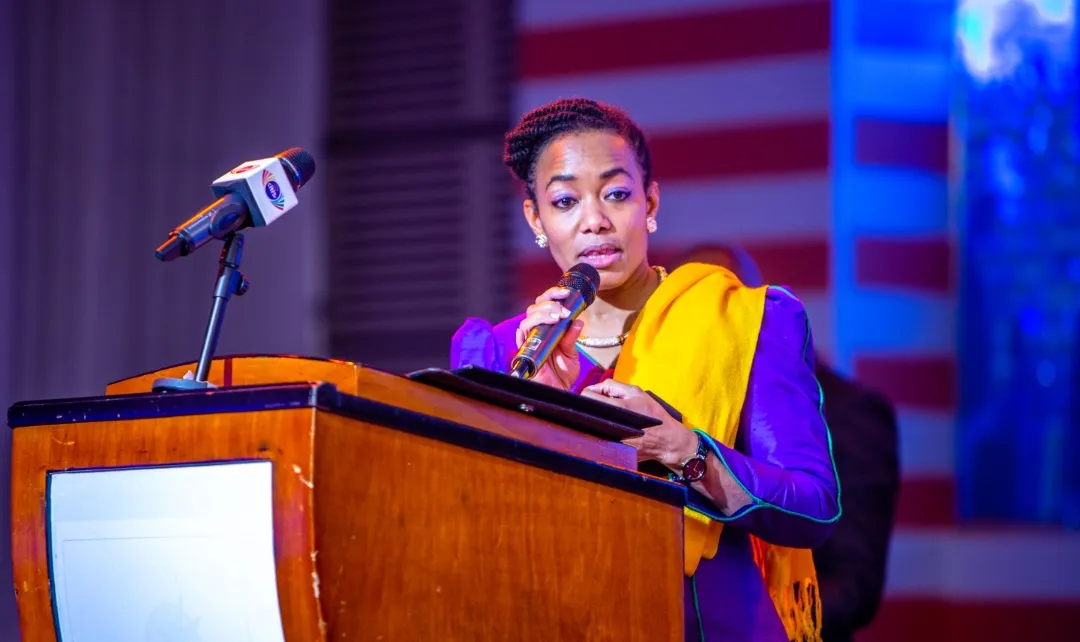
Dr Zanetor Agyeman-Rawlings
The New Patriotic Party first introduced the novelty in 2011, ahead of the 2012 parliamentary and presidential elections. At the time, the party’s women paid half of the full amount that was set for their male counterparts.
Many commended the party for the initiative, as political scientists believed it will help address the high level of apathy among women when it comes to contesting for political positions.
Other political parties were urged to emulate the gesture, a call the NDC heeded in that same year, by allowing their women parliamentary aspirants to pay even less than what the NPP was charging its women.
But according to the Zanetor Agyeman-Rawlings, considering how far Ghana’s democracy has come, that gesture is only a drop in the ocean.
While the young politician believes in the quota system to address the gender imbalance in political leadership, she noted that people must not merely fill positions on the basis of gender when they lack capacity.
“Not all male leaders everywhere present quality, but I am also not from the school of thought that just to fill a space so anybody at all can be presented; that person must build capacity. To me, decreasing filing fees is not enough because after decreasing filing fees there’s a struggle you must go through to even raise funding to support your campaign.”
She told the Host of Ekosiisen on Asempa FM, Osei Bonsu [Alias OB], that there remains a lot of hurdles for women to cross in their quest to put themselves up for public office.
Speaking on the Monday, September 4 edition of the show, she said there must be a lot of deliberate actions to take away all other impediments to women’s participation and rise in politics and governance.
“What I have seen in our politics is that the kind of insults reserved for women is different. Things that are even unrelated are used as insults against you. When you do that, it’s difficult enough trying to emerge as a woman anywhere in your field.
“And so when you’ve built up a reputation for yourself, and you feel like you want to represent your people in public office and then all kinds of insults and rubbish will be directed at you, then you ask yourself as a people what level of respect do we have for women in our society that we should allow women who have the courage to come out, to be insulted this way to the extent where your ask yourself; will you allow this to happen to your daughter sister or mother? She quizzed.
Mindset shift
She called for a mindset shift towards women in leadership or decision-making positions.
“We need to change our mindset with regard to how we make the space safer for women, otherwise you will have the women who have the capacity but they will not be interested in taking up those positions because me I have daughters. As a mother you want to be a role model to your children and you don’t want to be constantly explaining to them that this thing that you heard on the radio is a lie. It’s just my opponents trying to denigrate me so that they can gain the upper hand. Unfortunately, it has happened before.
Role of the media
She urged the media not to use their platforms as a conduit for such insults that discourage many qualified women from taking up political positions in the country.
She noted the use of abusive language on women politicians threatens inclusivity and equity as far as women’s role in governance is concerned.
“I will use this platform to appeal to the media that the media must take a strong position on this. Because if the media makes room for women to be abused, denigrated and belittled, that’s a dereliction of duty because the Constitution recognizes the value of the media popularly called the fourth estate.”
“The constitution recognises you [Media], and it means that your role in protecting our democracy is key, and as part of that if we’re not able to protect women when the constitution talks about inclusivity and equity which are all part of the pillars of good governance, then we are talking a lot and not putting our money where our mouth is, I don’t think that’s good enough” she noted.
According to the activist, attempts to bridge the gender gap in terms of women in leadership positions and their contributions to the governance process will yield no results if efforts are not made to clear the hurdles against women empowerment.
She bemoaned the fact that out of the current 275 Members of parliament in Ghana, only forty are women with 20 on both sides of the political divide.
Good examples
The eldest daughter of the 1st President under the 4th Republic of Ghana, Jerry John Rawlings, referenced countries like Egypt and Rwanda where more women are playing a part in political leadership and governance to buttress her point that those achievements were attained because of deliberate steps backed by political will.
“We need to look at the way it has worked in other jurisdictions. We must find mechanisms to level the playing field. Rwanda is mentioned a lot of times as a good example, but it didn’t happen by accident. There’s a conscious effort, and the political will is there. Even when they got more women, they didn’t stop there. It is something that is constantly being worked on, so it won’t happen automatically.”
She added that, “Egypt for example, their House of Representatives had a quota system for women and they carried it out for quite a few years. Then after they achieved a balance they removed the quota system and the numbers dropped again so badly that they had to restore it. So, there are certain situations where it won’t happen by default. There has to be a conscious effort to achieve and maintain the balance.”


